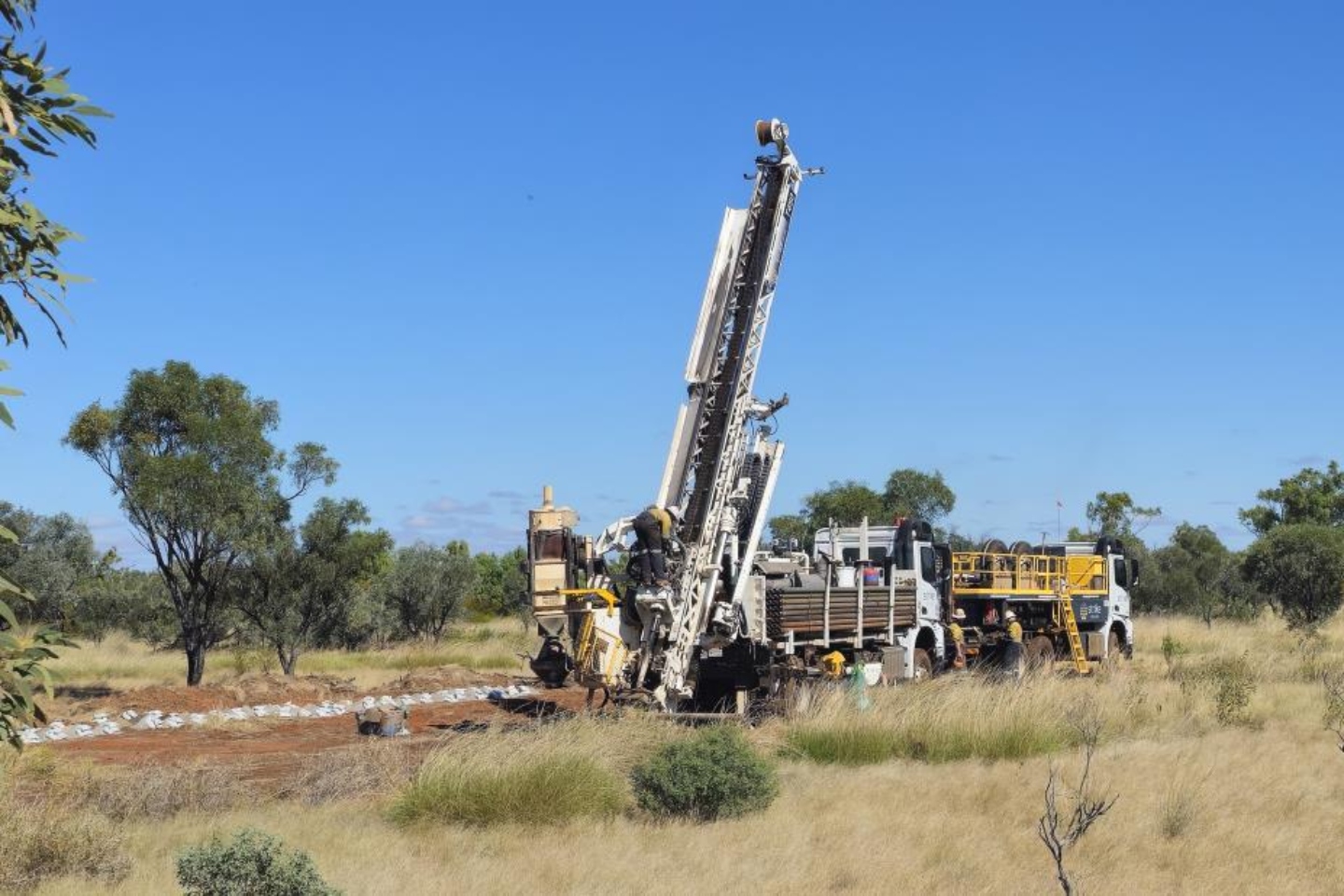Red Metal Ltd says its giant 4.8 billion-tonne rare earths deposit at its Sybella project near Mt Isa in QLD is a globally significant discovery. In revealing its maiden inferred mineral resource estimate, the company also pointed to a shallow section of the deposit at surface that is weathered granite and therefore potentially amenable to low-cost heap-leach processing.


Red Metal Ltd says its recently tabled giant 4.8 billion-tonne rare earths resource showing promising shallow, early mining potential at its Sybella rare earths near Mt Isa in Queensland is a “globally significant” discovery.
While revealing its maiden inferred mineral resource estimate, the company also pointed to a shallow section of the deposit at surface that is weathered granite and amenable to low-cost heap-leach processing.
Management also outlined a range of resource outcomes to underscore Sybella’s potential scope and to emphasise the huge quantities of valuable electric vehicle engine magnet elements including neodymium and praseodymium and even a solid showing of the even more lucrative “heavy” rare earths dysprosium and terbium.
The different mineral scenarios were based on various neodymium-praseodymium (NdPr) cut-off grades and ranged from a vast 4.8 billion tonnes at 302 parts per million (ppm) NdPr and 28ppm dysprosium-terbium (DyTb), using a 200ppm NdPr cut-off grade, down to a 209 million tonne resource at 377ppm NdPr and 34ppm DyTb with a 360ppm NdPr cut-off.
To get to those numbers the company covered more than 8km of enriched granite to collect 1,778 composite samples from a 10,511m air core (AC) and reverse circulation (RC) program, which included 139 drill holes.
Most of the AC holes were drilled to 60m and set up in patterns ranging from 800m by 200m to 800 by 400m, while some deeper RC holes went down to 240m. However, Australian-based H&S Consultants, who advised on the initial resource, have also indicated that refining the drill spacing to 200m by 400m could push the resource into an indicated category, fast tracking potential economic studies.
Importantly, the resource material starts at surface and remains open at depths below 100m. However, importantly, the material also includes up to 788 million tonnes of soft weathered granite running at 297ppm NdPr and 28ppm DyTb, using a 200ppm NdPr cut-off grade, which provides an option for early, low-cost mining. This will now be the focus of initial infill drilling.
Red Metal managing director Rob Rutherford said: “We knew it was going to be big but this is way beyond our expectation. This giant resource base will enable any future operation to be long-life and run at very significant economies of scale, lowering its unit mining and processing costs. Sybella is shaping up as a globally significant source of MREO minerals and has the potential to become a strategically sought after asset.”
Early metallurgical testing has been promising, indicating that 21 per cent of the project’s mineral basket value comes from the high-demand heavy rare earth elements such as dysprosium and terbium. Heavy rare earths are really only mined in significant quantities out of China which would make Red Metal’s Sybella project something of an Australian trail blazer if it was able to also produce heavy rare earths at those levels.
The company also believes that Sybella’s granite-hosted deposit type, with a pH of 3.5, is unique for REO deposits and offers both high-value materials with low impurities and early-stage scalable mining opportunities though heap leaching of the soft weathered materials.
Just 20km from Mount Isa in Queensland, the project benefits from its proximity to established infrastructure, including access to power, water and labour.
And as the focus of the project moves towards an indicated resource category, Red Metal now has sufficient data to kick off advance studies on mining techniques, metallurgical processing and infrastructure.
Heritage surveys and infill drilling of the near surface high-grade material are scheduled, notwithstanding recent bushfires in the region which have temporarily delayed fieldwork.
The company has also begun funding discussions with governments and end-users to explore funding options, ensuring long-term investment viability.
The run up to the end of the year will be a busy one for Red Metal as it focuses on not only infill drilling at Sybella but also gets going on an early-stage drill campaign at its nearby Gidyea prospect, noteworthy for the prosect of a large-scale iron oxide-copper-gold (IOCG) breccia system, not dissimilar to Evolution Mining’s vast Ernest Henry copper-gold mine that is also in the region.
Similarly, a drill program is kicking off at Red Metal’s Lawn Hill silver-lead-zinc project, with $390,000 of funding from the Queensland government to test the significant large-scale base metals potential.
But for now it’s all about rare earths and Sybella.
The Sydney-based company now believes Sybella represents a potentially new rare earths deposit style for Australia – and possibly the world – with its rare earths hosted by partly weathered and fresh granite.
Traditional sources of rare earths are usually found in either a hard rock carbonatite setting or in clays and Red Metal says its Sybella project is somewhere in between. It says Sybella could potentially be as easy to mine as clays, but without the clay – the very thing that makes mining clay-based rare earths a little difficult.
When it comes to rare earths metallurgy (and not necessarily grade) is King and Red Metal says early testing has shown some exceptional outcomes.
According to the company the coarsely crushed granites are classifying as “Very Soft” when weathered and “Soft” when fresh which should translate into very competitive capital and operating costs for both mining and crushing of the product - and at 4.8b tonnes Red Metal has a lot of product and is well placed to ride the next lithium/rare earths wave when it comes.
Is your ASX-listed company doing something interesting? Contact: matt.birney@businessnews.com.au












